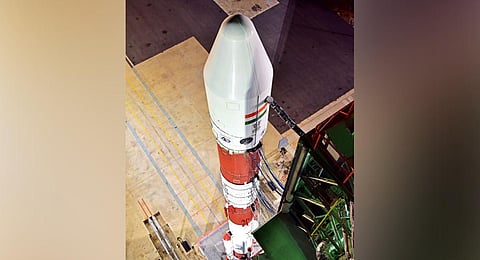

SRIHARIKOTA: While all eyes were set on the launch of XPoSat, India’s first dedicated satellite to study black holes, the Indian Space Research Organisation (ISRO) on Monday hit another important milestone.
The space agency successfully tested the Fuel Cell Power System (FCPS) developed by the Kerala-based Vikram Sarabhai Space Centre (VSSC). This takes India a step closer to realising the country’s ambition to establish the Indian Space Station.
FCPS, a 100W payload, was flown out along with nine other payloads, in the fourth stage of the PSLV Orbital Experimental Module-3 (POEM3) rocket, utilised by ISRO as a test bed.
The most significant payload of the lot, FCPS generates electricity to be used as a power source for the planned space station and also produces pure drinking water as a byproduct, which would quench the astronauts’ thirst at the station.
VSSC Director S Unnikrishnan Nair said this is the first time ISRO has experimented with fuel cells in space. “Oxygen and hydrogen stored under high pressure are passed through the fuel cell assembly, which spurs a chemical reaction that produces power and pure drinking water as a byproduct,” he said. “Having a water source on board is a must when it comes to building space stations. Fuel cells are ideal for both power generation and producing water.
The 100W FCPS has been successfully tested. We wanted to see how it performs in a weightless environment, in the presence of radiation and under extreme temperatures. The entire system worked as intended. We have plans to build a 100kW FCPS shortly,” Nair said. Moreover, VSSC has built more such fuel cells and given them to agencies for ground testing. “These fuel cells can also be used to set up small, modular power stations in inaccessible terrains,” he said.
The International Space Station (ISS) is powered by a combination of fuel cells and solar cells. An ISRO scientist noted, “This technology is not new. India is simply trying it out for the first time and attempting to improve its scope and utility.”
ISRO is gearing up for the launch of the first module of the Indian Space Station by 2028 and making it fully operational by 2035.
Additionally, ISRO has also successfully tested silicone-based high energy cells (also developed by VSSC), which were among the payloads tested on Monday. “These Lithium-ion cells containing Silicone-Graphite have an enhanced energy density, making them compact and lightweight. Once the technology is sufficiently developed, we can put it to use in our industries,” Nair said.
Applause for ISRO
AP Governor S Abdul Nazeer and CM YS Jagan Mohan Reddy congratulated ISRO scientists for successful launch of PSLV-C58. The Chief Minister said it’s a moment to cherish as the satellite was placed into the intended orbit ringing the New Year